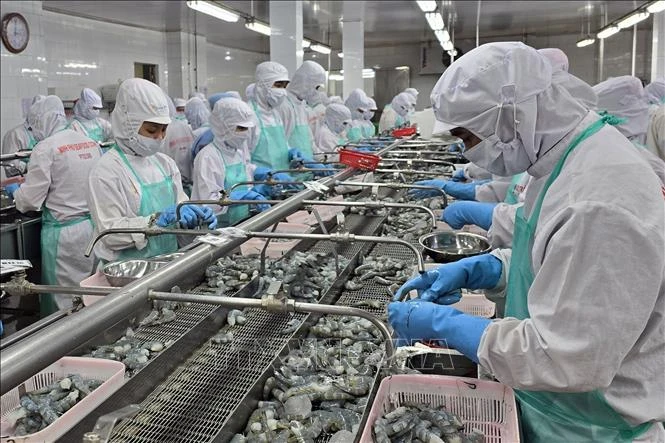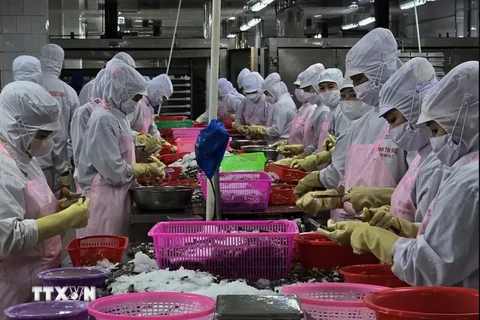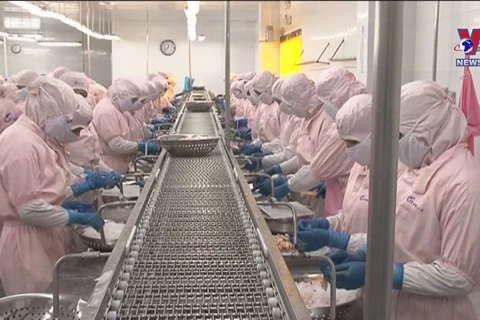
HCM City (VNA) – Vietnam's aquatic product exports are on track to hit a target of 9.5 billion USD by the end of this year, buoyed by sustained positive growth in recent months, according to the Vietnam Association of Seafood Exporters and Producers (VASEP).
In August alone, aquatic product exports surged by 20%, reaching nearly 953 million USD. This impressive performance brought the eight-month total to some 6.3 billion USD, marking a 9% increase year on year. All key export products saw significant growth, with shrimp leading the way at a 30% increase, followed by tra fish at 18%, tuna 13%, and other marine fish 12%.
VASEP Communications Director Le Hang said the Vietnam Fisheries International Exhibition - Vietfish held in August drew considerable interest from international buyers, signaling a promising outlook for aquatic product exports. Additionally, forecasts of a global shrimp production decline in 2024 are expected to drive up shrimp prices, benefiting domestic shrimp exporters.
VASEP remains optimistic about ample opportunities for seafood exports in the remainder of the year. The shift in US orders and favourable conditions for exports to China, coupled with decreasing freight costs compared to early 2024, are all set to reduce expenses and allow firms to focus more confidently on end-of-year orders.
However, the road ahead is not without challenges. The European Union's yellow card on illegal, unreported, and unregulated (IUU) fishing, as well as anti-subsidy and anti-dumping duties on shrimp, also pose hurdles. Businesses must adapt their operational plans to navigate these obstacles and diversify their export markets to avoid over-reliance on traditional markets./.






















